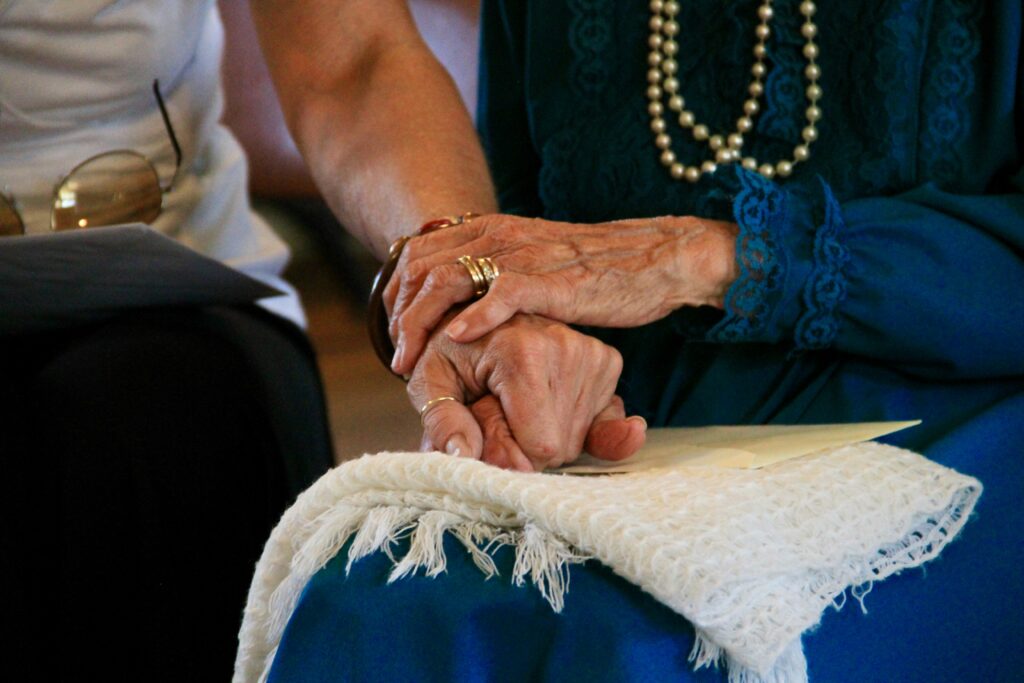
5 minute read
Imagine an older Latina woman we’ll call Maria who is accompanied to her primary care visit for a diabetes check-up by her two adult daughters. Because Maria speaks little English and her provider speaks little Spanish, the daughters immediately start translating for their mother. The daughters also directly answer the provider’s questions about Maria’s blood sugars, adherence to her insulin regimen, diet, and exercise. The provider then gives the daughters direction about how to best help their mother make some changes to her regimen.
Is this the picture of person-centered care? Some American providers might argue that it is not. Defined by the Centers for Medicare and Medicaid as care “delivered in a setting and manner that is responsive to individuals and their goals, values, and preferences,” person-centered care is a moral/legal precept that has become a foundational element of American healthcare, espoused by every government agency and expounded in every healthcare professional school. Unless Maria has given the provider permission to share her personal health information with her daughters and allow them to make healthcare decisions for her, then this medical visit seems to be more family-centered than person-centered.
But we can also ask ourself whether the specific set-up of this medical visit is unusual. I believe that most providers would agree that the answer is no; many routinely practice this way. Why? They assume that, if Maria has invited her daughters to sit in on the visit, she has empowered them to participate in establishing her “goals, values, and preferences.” If pressed, many providers will also admit it is more time-efficient and economical to allow family members to provide language interpretation than hiring in-person or telephonic interpreters, even though most health systems and professional organizations warn against using family members as interpreters because they may introduce their personal biases into the patient’s medical visits.
There is something more important going on here, though: The provider in this imaginary scenario is going along with the daughters’ role in their mother’s check-up as an implicit acceptance of “familism.” According to social-personality psychologist Belinda Campos and colleagues, familism is “a cultural value that emphasizes warm, close, supportive family relationships and that family be prioritized over self.” Considered to be a core value in Latino, Asian, and many African cultures, familism is becoming more evident in American healthcare as immigration grows and the number of patients from those cultures increases. The U.S. Census Bureau reported in 2022 that the U.S. population of foreign-born individuals had grown to 46.2 million from 40 million in 2010, an increase of over 15 percent. The number of these foreign-born individuals who are older adults is anticipated to rise from over 8 million in 2020 to nearly 20 million by 2050. No doubt, there will be more adult daughters speaking for their immigrant mothers in the years to come. There will be more adult sons of immigrants, too, making their views heard in outpatient, inpatient, and home-based healthcare visits.
What if the provider in our example were a stickler for what they considered to be person-centered care and HIPAA, the federal law that protects an individual’s personal health information? It is hard to imagine that the provider would just ask the daughters to leave the medical exam room; that might seem abrupt and rude. More likely, the provider would ask Maria if it is okay for her daughters to stay and participate. Maria might respond with a quick assent but inwardly feel puzzled. Her daughters are extremely close to her, she might think. Why wouldn’t she want them involved in her care? She might even react by thinking that the provider’s question disrespects the love, responsibility, and devotion that she and her family members feel toward one another.
Because here is the most important element of familism and, by extension, family involvement for primary care and other healthcare providers: Familism isn’t just about prioritizing family over individual needs; it is a value common among immigrant and other cultures that embeds an individual’s self-identity in their families. Individual are parts of a tightly bound whole, not wholly atomistic beings.
In short, familism isn’t antagonistic to American providers’ notions of person-centered care. It is part and parcel of person-centered care. So long as the Marias of this world prefer that their daughters are integral to every healthcare discussion and decision, then American providers must honor that preference and embrace those family members. Family-based care then becomes truly person-centered.

Leave a Reply